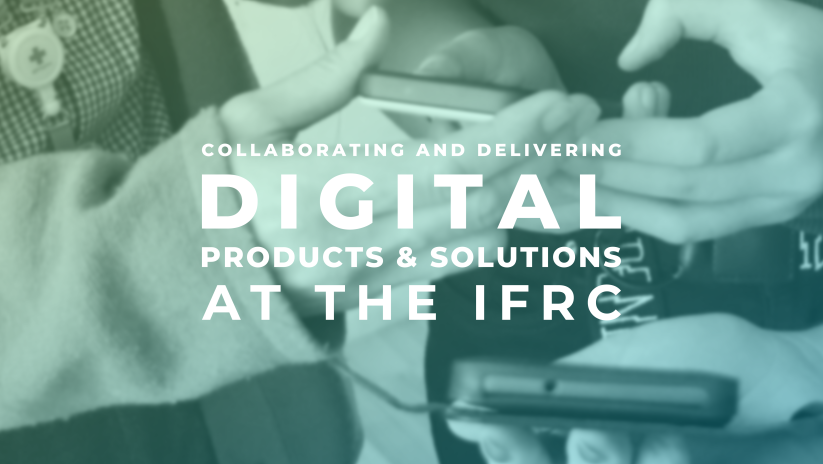
Written by Heather Leson, IFRC Solferino Academy
At the IFRC Global Innovation Summit, IFRC Secretary General Jagan Chapagain highlighted that embracing collaboration, investing in understanding the changing world, and empowering local innovators are critical components for the movement’s transformation journey (watch the video here).
Echoing that, our work has transformed in many ways in the past years. For digital work, the leaps we have made are substantial. How can we transform our approaches to digital work on existing and new digital products and services? How can leadership support this type of change? How can we best collaborate as a network on digital products and services?
While every solution does not need to scale beyond a National Society, we know we can be more efficient and build together with better coordination. Revised business and finance models are required to use our strengths while pivoting to deliver complexity across contexts, languages, and diverse humanitarian needs.
Over the past year, we’ve worked across special events, including the IFRC Global Innovation Summit, and parallel activities to write recommendations for our leadership and network. Our recommendations come from a diverse group of experts and practitioners, including those in data and digital roles. We asked what the ways are we can better align and transform. It is always essential to maintain balance when determining what is needed for the overall network and individual national societies. There is no shortage of debate about scaling and efficiency in product management. Ultimately, our complexity as a network behoves us to consider our levers and opportunities for collaboration.
To summarise, we suggest the following pathways to change:
- Identifying needs and opportunities for shared ownership — digital products and services can have a better impact when built with communities, National Societies, and functional experts (e.g., emergency operations, climate, and health).
- Employing best practices to develop and maintain digital products — requires us to modify our delivery models inside our organisations in research, UX, development, testing, overall support models, etc.
- Be efficient with product development — we need better coordination and collaboration, not multiple ‘competing’ products or building in parallel with complementary options, including open-source methodologies.
- Revised models for long-term sustainable impact — we must foster and create new digital product and service models, including sharing lessons as a network.
Here are some of our recommendations and examples.
Are you working on technology in the IFRC network? Join us in the data and digital practitioner network.



